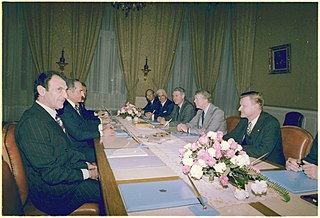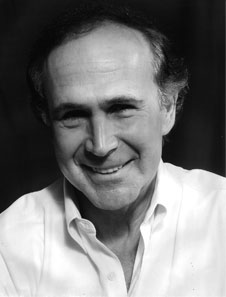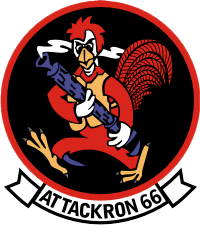Career in journalism
After leaving the navy, Fenton began his career in journalism as a domestic and foreign correspondent for the Baltimore Sun , where he worked from 1961 to 1969. While with the Sun, he reported on affairs in the Middle East and Europe, including the 1967 Six-Day War and the 1968 "Days of May" in Paris. His 1968 reporting earned Fenton an award from the Overseas Press Club.
Fenton joined CBS News as a Rome-based correspondent in 1970, and conducted the first interview with hostages taken that year by the Palestine Liberation Organization. He later reported on the Indo-Pakistani War of 1971, the 1973 Yom Kippur War, and the 1974 Turkish invasion of Cyprus. When Ayatollah Khomeini overthrew the Shah of Iran in 1979, Fenton was the first western journalist to interview Iran's new leader. He later returned to Tehran to report on the Iran hostage crisis.
In 1991, Fenton was in Israel during the first Gulf War to report on the effects of Scud missile attacks from Iraq. Later that year, he was in Moscow to cover the fall of the Soviet Union. During the 1990s, Fenton reported on the wars in the Balkans, and violence in the Middle East and Africa.
During his CBS career, Fenton served as the network's Bureau Chief in Rome, Italy, (1970-1973), Tel Aviv, Israel, (1973-1977), Paris, France, (1977-1979), London, United Kingdom, (1979-1994), Moscow, Russia, (1994-1996), and London again (1996-2004).
After retiring, Fenton wrote the book, Bad News: The Decline of Reporting, the Business of News, and the Danger to Us All, published in 2005. ( ISBN 0-06-079746-0)

This Pulitzer Prize has been awarded since 1942 for a distinguished example of reporting on international affairs, including United Nations correspondence. In its first six years (1942–1947), it was called the Pulitzer Prize for Telegraphic Reporting - International.

Edwin Harold Newman was an American newscaster, journalist, and author. After beginning his career with the wire services and serving in the U.S. Navy during World War II, Newman worked in radio for CBS News. He is known for a 23-year career in television news with the National Broadcasting Company (NBC), from 1961 to 1984.

James Kenneth McManus, better known professionally as Jim McKay, was an American television sports journalist.

William Healy Sullivan was an American Foreign Service career officer who served as ambassador to Laos from 1964 to 1969, the Philippines from 1973 to 1977, and Iran from 1977 to 1979.

Frank James Reynolds was a television journalist for CBS and ABC News.
Bernard Sidney Redmont was an American journalist and Professor of Journalism and later Dean of the College of Communication at Boston University.

Robert David Simon was an American television correspondent for CBS News. He covered crises, war, and unrest in 67 countries during his career. Simon reported the withdrawal of American troops from Vietnam, the Israeli-Lebanese Conflict in 1982, and the student protests in China's Tiananmen Square in 1989. During the Persian Gulf War in 1991, he and four of his TV crew were captured and imprisoned by Iraq for 40 days. He published a book about the experience titled Forty Days.
Lemuel Tucker was an American journalist.

Matthew Gerald Chance is a British journalist working for CNN as one of the network's Senior International Correspondents.

William Randall Downs, Jr. was an American broadcast journalist and war correspondent. He worked for CBS News from 1942 to 1962 and for ABC News beginning in 1963. He was one of the original members of the team of war correspondents known as the Murrow Boys.

Morton Dean Dubitsky, better known as Morton Dean, is an American television and radio anchor, news correspondent and author.
David E. Reed (1927–1990), was a Reader's Digest roving editor.

On June 29, 2005, shortly after Mahmoud Ahmadinejad won the Iranian presidential election, several major news outlets publicized allegations that he gunned down several Americans in the 1979–1981 Iran Hostage Crisis.
Robert P. Dyk was an American journalist, reporter and correspondent. Dyk worked for CBS News, ABC News and WMTW-TV during his career.
Frank Kearns (1917–1986) was an American broadcast journalist for CBS News from 1958 until 1971, although he first began with CBS in 1953 as a freelance correspondent, or “stringer”, stationed in Cairo, Egypt.
Donald Kirk is a veteran correspondent and author on conflict and crisis from Southeast Asia to the Middle East to Northeast Asia. Kirk has covered wars from Vietnam to Iraq, focusing on political, diplomatic, economic and social as well as military issues. He is also known for his reporting on North Korea, including the nuclear crisis, human rights and payoffs from South to North Korea preceding the June 2000 inter-Korean summit.[1]
Christopher J. Harper is an American professor and former journalist.

VA-66 was an Attack Squadron of the U.S. Navy; it was the second squadron to be so named. The squadron was called to duty and established as Reserve Fighter Squadron VF-671 on 1 February 1951. It was redesignated Fighter Squadron VF-81 on 4 February 1953, and finally as VA-66 on 1 July 1955. The squadron was disestablished on 1 October 1986, but one detachment continued in existence until 31 March 1987. The squadron's nickname was the Waldomen from the 1950s to the early 1960s, and the Waldos from that point forward. Its insignia, a rooster toting a machine gun, was a well-known design in naval aviation.
Mark Phillips is a Canadian television journalist, and currently, the Senior Foreign Correspondent, based in London, working for CBS News.
This page is based on this
Wikipedia article Text is available under the
CC BY-SA 4.0 license; additional terms may apply.
Images, videos and audio are available under their respective licenses.










